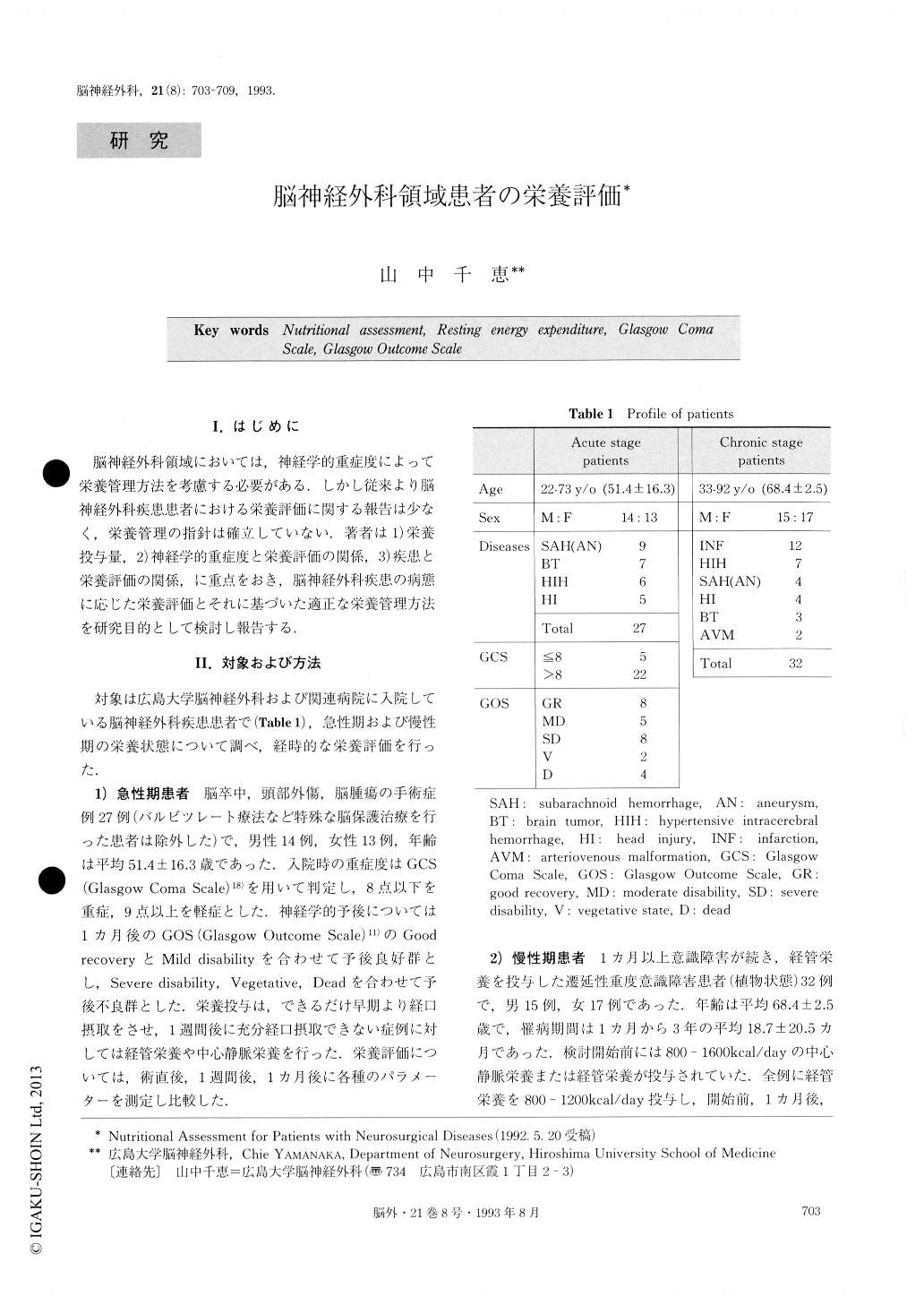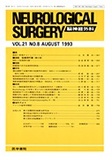Japanese
English
- 有料閲覧
- Abstract 文献概要
- 1ページ目 Look Inside
I.はじめに
脳神経外科領域においては,神経学的重症度によって栄養管理方法を考慮する必要がある.しかし従来より脳神経外科疾患患者における栄養評価に関する報告は少なく,栄養管理の指針は確立していない.著者は1)栄養投与量,2)神経学的重症度と栄養評価の関係,3)疾患と栄養評価の関係,に重点をおき,脳神経外科疾患の病態に応じた栄養評価とそれに基づいた適正な栄養管理方法を研究目的として検討し報告する.
There have been few guidelines in the field of nutri-tional management with regard to neurosurgical pa-tients. In this review, caloric intake and nutritional pa-rameters were measured in 24 patients in the acute stage and 32 patients in the chronic stage (prolonged unconscious state). We ascertained (1) whether the caloric intake was adequate or not, (2) the relationship between the grade of neurological damage and the nut-ritional assessment, and (3) we discussed the rela-tionship between diseases and the nutritional assess-ments.
The acute-stage patients, 14 male and 13 female, con-sisted of both a neurologically good prognostic group and a neurologically poor prognostic group. All of the prolonged-unconscious patients revealed poor pro-gnosis. The nutritional assessment was referred to suchparameters as, diet and nutrition, anthropometric measurements, laboratory tests, immunological para-meters and prognostic nutritional index.
The results were, 1) the acute stage patients received less caloric intake than their resting energy expendi-ture, 2) the neurologically poor prognostic patients showed muscle atrophy and decrease of creatinine-height index which represents muscle content, 3) there was no significant differences between the assessment parameters in each disease, and 4) serum electrolytes decreased in prolonged-unconscious patients with a small amount of caloric intake.

Copyright © 1993, Igaku-Shoin Ltd. All rights reserved.


